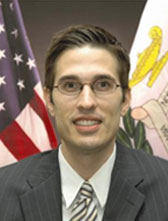Dr. Jeffrey Hornung completes stay with APCSS
Dr. Jeffrey Hornung The Asia-Pacific Center for Security Studies bid farewell June 19 to Dr. Jeffrey Hornung who served as an associate professor with the Center the last five years. The professor has taken a research fellow position at the Sasakawa Peace Foundation USA in Washington, D.C. As a member of the APCSS faculty, Hornung helped enhance the leadership and problem solving skills of security practitioners throughout the Asia-Pacific region. Through six on-site courses and numerous workshops held in various nations, APCSS professors build greater understanding of the socio-economic, political, defense, health and environmental issues impacting the region’s security structure. [...]






